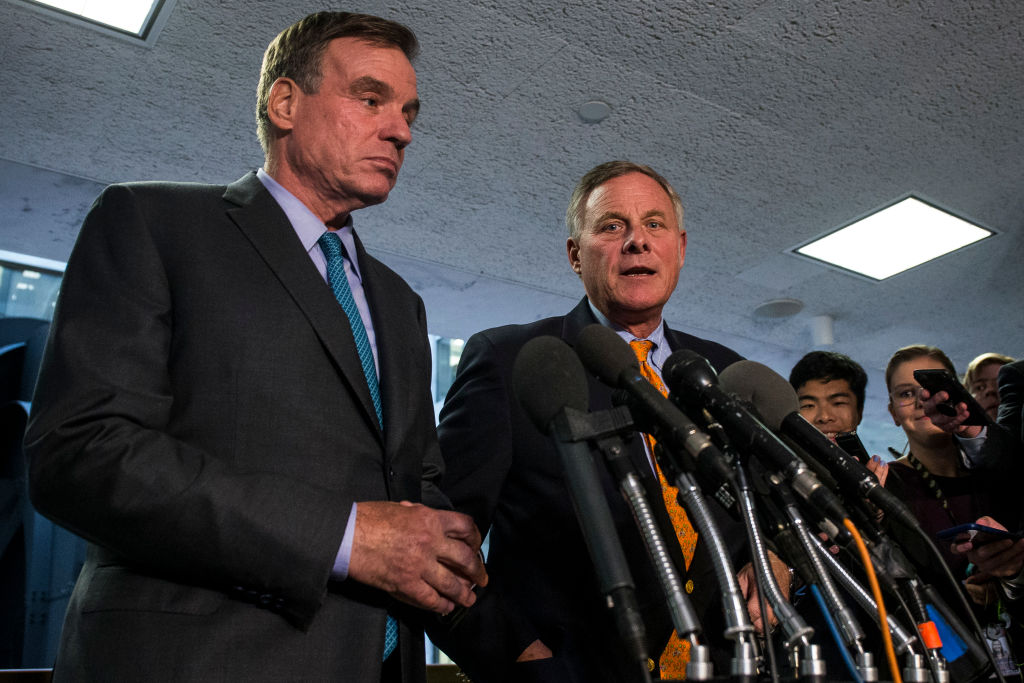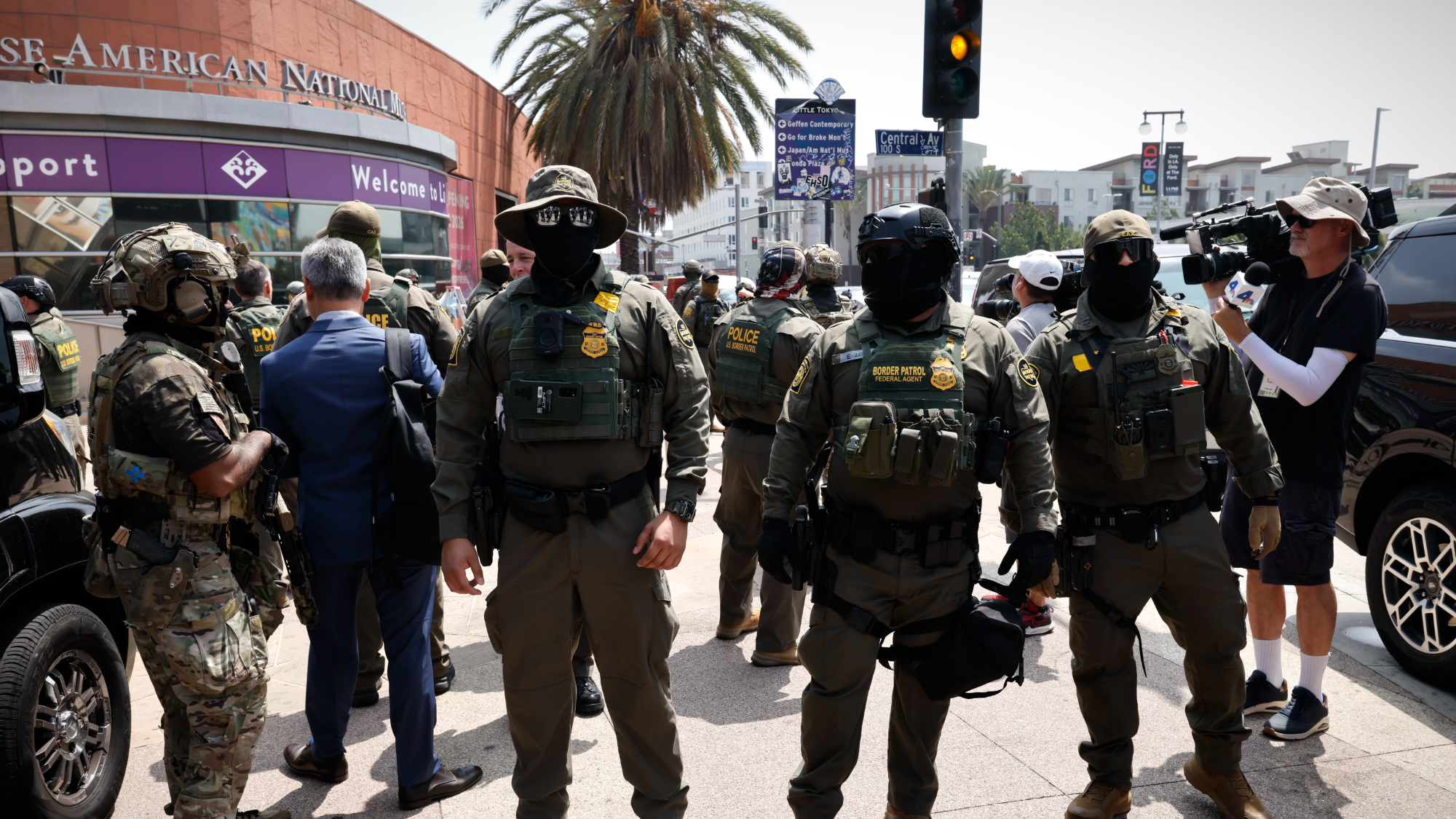Kremlin trolls 'uncorked' champagne after helping Trump win, Senate Intelligence Committee reports


A free daily email with the biggest news stories of the day – and the best features from TheWeek.com
You are now subscribed
Your newsletter sign-up was successful
The Senate Intelligence Committee released its second volume on 2016 election interference Tuesday, and the Republican-led panel bluntly concluded that Russia "sought to influence the 2016 U.S. presidential election by harming Hillary Clinton's chances of success and supporting Donald Trump at the direction of the Kremlin." The Kremlin-directed Internet Research Agency's (IRA) "social media activity was overtly and almost invariably supportive of then-candidate Trump to the detriment of Secretary Clinton's campaign," the report added.
That conclusion matches the findings of U.S. intelligence agencies and former Special Counsel Robert Mueller's investigation, but President Trump has downplayed Russia's role and embraced a conspiracy theory that Ukraine, not Russia, meddled in the election to help Clinton. "Russia's targeting of the 2016 U.S. presidential election was part of a broader, sophisticated, and ongoing information warfare campaign," the committee added, and it was "a vastly more complex and strategic assault on the United States than was initially understood."
Messages obtained by the Senate Intelligence Committee showed IRA operatives celebrating Trump's victory. After the elction, one operative wrote, "We uncorked a tiny bottle of champagne ... took one gulp each and looked into each other's eyes. .... We uttered almost in unison: 'We made America great.'"
The Week
Escape your echo chamber. Get the facts behind the news, plus analysis from multiple perspectives.

Sign up for The Week's Free Newsletters
From our morning news briefing to a weekly Good News Newsletter, get the best of The Week delivered directly to your inbox.
From our morning news briefing to a weekly Good News Newsletter, get the best of The Week delivered directly to your inbox.
The Kremlin's social media operation, which began in 2014 and also hit Trump's GOP primary rivals, targeted black voters more than any other group, before and after the election. "Russia is waging an information warfare campaign against the U.S. that didn't start and didn't end with the 2016 election," Committee Chairman Richard Burr (R-N.C.) said. "Their goal is broader: to sow societal discord and erode public confidence in the machinery of government."
The report recommends that Congress require stricter disclosure of ad buyers, presses social media companies to share information about foreign disinformation among themselves, and asks the White House to publicly and forcefully warn about foreign interference in the 2020 election and develop a plan to deter future attacks. White House spokesman Judd Deere said the administration has made election security a priority.
A free daily email with the biggest news stories of the day – and the best features from TheWeek.com
Peter has worked as a news and culture writer and editor at The Week since the site's launch in 2008. He covers politics, world affairs, religion and cultural currents. His journalism career began as a copy editor at a financial newswire and has included editorial positions at The New York Times Magazine, Facts on File, and Oregon State University.
-
 The environmental cost of GLP-1s
The environmental cost of GLP-1sThe explainer Producing the drugs is a dirty process
-
 Greenland’s capital becomes ground zero for the country’s diplomatic straits
Greenland’s capital becomes ground zero for the country’s diplomatic straitsIN THE SPOTLIGHT A flurry of new consular activity in Nuuk shows how important Greenland has become to Europeans’ anxiety about American imperialism
-
 ‘This is something that happens all too often’
‘This is something that happens all too often’Instant Opinion Opinion, comment and editorials of the day
-
 House votes to end Trump’s Canada tariffs
House votes to end Trump’s Canada tariffsSpeed Read Six Republicans joined with Democrats to repeal the president’s tariffs
-
 Bondi, Democrats clash over Epstein in hearing
Bondi, Democrats clash over Epstein in hearingSpeed Read Attorney General Pam Bondi ignored survivors of convicted sex offender Jeffrey Epstein and demanded that Democrats apologize to Trump
-
 El Paso airspace closure tied to FAA-Pentagon standoff
El Paso airspace closure tied to FAA-Pentagon standoffSpeed Read The closure in the Texas border city stemmed from disagreements between the Federal Aviation Administration and Pentagon officials over drone-related tests
-
 Judge blocks Trump suit for Michigan voter rolls
Judge blocks Trump suit for Michigan voter rollsSpeed Read A Trump-appointed federal judge rejected the administration’s demand for voters’ personal data
-
 US to send 200 troops to Nigeria to train army
US to send 200 troops to Nigeria to train armySpeed Read Trump has accused the West African government of failing to protect Christians from terrorist attacks
-
 Grand jury rejects charging 6 Democrats for ‘orders’ video
Grand jury rejects charging 6 Democrats for ‘orders’ videoSpeed Read The jury refused to indict Democratic lawmakers for a video in which they urged military members to resist illegal orders
-
 Judge rejects California’s ICE mask ban, OKs ID law
Judge rejects California’s ICE mask ban, OKs ID lawSpeed Read Federal law enforcement agents can wear masks but must display clear identification
-
 Lawmakers say Epstein files implicate 6 more men
Lawmakers say Epstein files implicate 6 more menSpeed Read The Trump department apparently blacked out the names of several people who should have been identified
